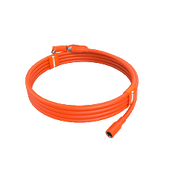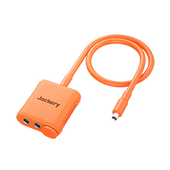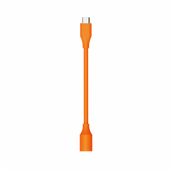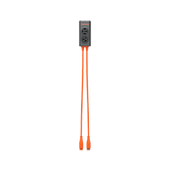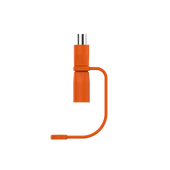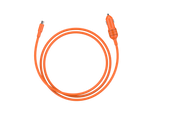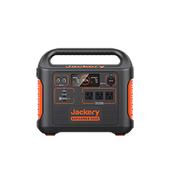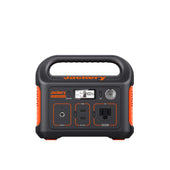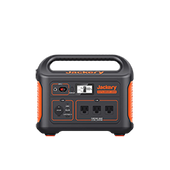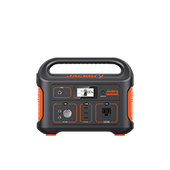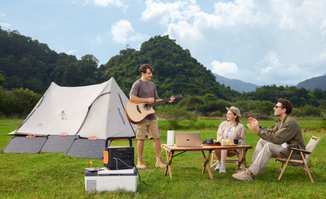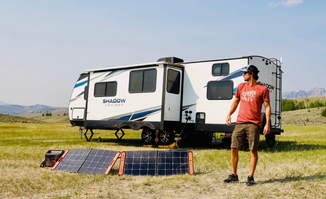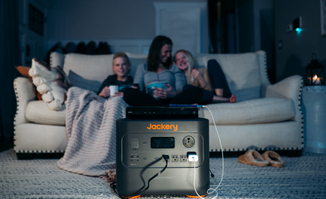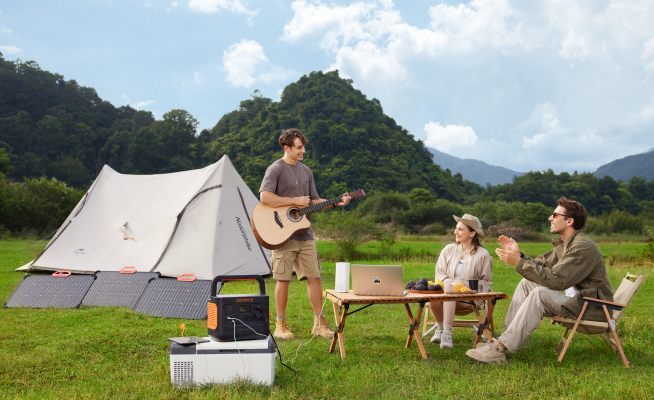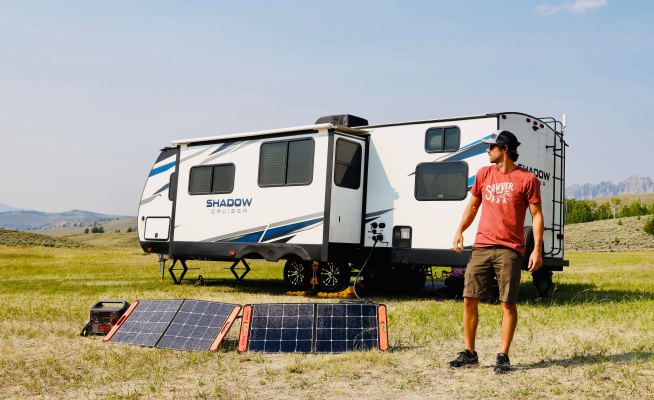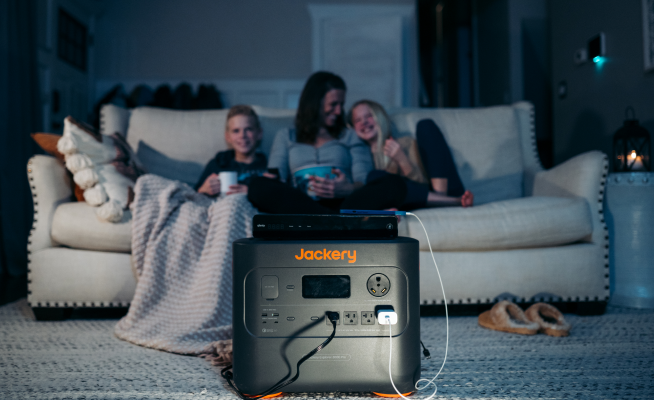Ultimate Guide to Inverter VS. Generator: Which One is Better?
If you are considering buying a generator or an inverter but need to know the difference and which one you should buy, let's answer some of your questions. Most people don't know the difference between an inverter vs generator, as both of these sound similar and are related to electricity. Another thing that confuses people is that the new solar generators have built-in inverters.

To give you a quick run-through, a generator produces electrical while an inverter converts direct current into altering current. But this doesn't answer which one is better and which one is ideal for home use. This post will tell you everything you need to know about inverter vs generator, how they work, and what generators with built-in inverters are.
What is an Inverter

If you want to know more about inverters and their uses, let's talk about AC and DC. Altering current or AC can travel back or forth, meaning it can travel for a long distance without much energy loss. Due to its nature, altering current can also tolerate high voltage, which makes it ideal for supplying power to houses and buildings. DC or direct current moves in one direction as the electron moves in a straight path. While your house runs on AC, you need DC to power the device.

As part of the inverter vs generator discussion, let's talk about what an inverter is. It is an electronic device that converts direct current stored in batteries into altering current to power your home appliances. It has multiple electronic circuits for load management and to control battery charging. It acts as an adaptor for all of your home appliances as it can power low-voltage domestic appliances by using conventional wiring and a battery power setup. An inverter's job is to produce powers that have similar in quality to what the main grid supplies. You can use them as a stand-alone unit, or you can connect them to the grid. They work perfectly in both cases.
How Does an Inverter Work
When talking about generator vs inverter, you have to understand the main detail that separates these two as completely different devices. Generators convert energy into electricity while an inverter can't do that. Inverters take existing power from a battery or some other source in the form of direct current and convert it into alternating current to power your house. It runs the power from multiple switches in different directions to give a solid frequency to the energy wave.
What is a Generator

A conventional electric generator is an electrical device that can convert some sort of mechanical energy into electrical energy. Generators are the most commonly used power suppliers during shutdowns as they can work for a longer period, and you depending on the size of the generator you are using, produces enough energy to power your house or building. For the inverter vs generator topic, generators don't require a battery storage system to work, and they don't need an external electric power supply. Conventional generators use gasoline, natural gas, or coal to produce energy. Industrial-scale generators burn fuel constantly to power all the heavy equipment.
How Does a Generator Work
As you read, generators create electricity from mechanical energy, but it is an oversimplification of the process. Generators don't produce electricity; they use the principles of electromagnetic induction to furnish electrical energy when an outer energy source drives it at a definite speed in the form of a prime mover. You can devise a generator to either produce alternating current or direct current. So it can't manage the load or power low-voltage domestic appliances without a proper setup.
Inverter VS. Generator: What’s Differences
People mostly use inverters and generators to power their houses and appliances during a shutdown. This makes some people believe that both of these are one and the same, with similar functionality and uses. However, both of these can't be more different based on what their applications are and how they operate. Here is a simple table to help you understand the difference between inverter vs generator.
|
Parameter |
Inverter |
Generator |
|
Functionality |
An inverter converts direct current DC stored in a battery into alternating current AC. |
A generator converts mechanical energy from some source into electrical energy. |
|
Power Source |
Inverter takes power from a battery which charges from electricity. |
The most common generator has an internal combustion system which uses diesel or gasoline as a power source. |
|
Energy |
Inverter takes DC power into alternating current. It provides a stable electric signal which is properly filtered and is perfect AC. |
Generators produce electrical energy by converting mechanical energy, commonly from fossil fuels. |
|
Weight |
An inverter on its own is a compact and lightweight device, but it only works with a set of batteries that are heavy and hard to move around. |
A generator is a heavy device that has a metal frame and a set of wheels to move around. If you want more power, you need more space. These are not easy to move around. |
|
Cost |
Inverters are more expensive than generators of the same rating. |
Generators are fairly cheaper than inverters. |
|
Start Time |
Inverters start instantly when the power goes out. You don’t need to do anything. |
When the power goes out, you have to manually start the generator, and it takes a lot of time. |
|
Starting Process |
It automatically starts when there is no electricity coming from the grid connection. |
Based on the type of generator you have, you might need to push a button, crank it with a key, or manually start the motor with a rope. |
|
Energy Storage |
It stores electrical energy in the batteries and uses it to power the house when the power goes out. |
It produces energy on the spot by converting mechanical energy, so there is no storage option. |
|
Maintenance |
Inverters are easy to maintain as you don't have to do much. Keep it clean, and make sure the water level in the batteries is perfect, and you are good to go. |
Generators are similar to your cars; they work on diesel or gasoline, so they require regular maintenance, such as oil changes and lubricant changes. |
|
Portability |
Inverters require less space for installation, but you can't move them around. |
Generators are big and take up a lot of space, but you can move them and even take them for camping and other activities. |
|
Noise |
Inverters are soundless devices that only produce a beeping sound when the power goes out and comes back. |
Generators have rotatory motor that causes a lot of noise pollution. |
Inverter vs Generator: Basics
An inverter requires a source of electricity, mostly a grid, to charge the batteries for later use. It sends energy waves through multiple circuits to convert direct current to alternating and vice versa.
A generator as the name suggests takes mechanical energy from combustible materials such as gasoline and diesel and converts it into electrical energy. It works on the principle of electromagnetic induction, which either outputs DC or AC.
Inverter vs Generator: Maintenance
Inverters are easier to maintain as there is no mechanical movement. These are small devices that can run smoothly for more than a decade. All you have to care for are the batteries connected to the inverter. You need to ensure that the water level is always at the advised limit.
Generators are hard to maintain and require regular maintenance as their working involves multiple mechanical functions including the motor that rotates with the burning of fuel. You need to track oil changes, replace lubricants, and make sure other smaller components are working fine.
Inverter vs Generator: Noise
Inverters have microprocessors to limit the sound and make sure no extra noise is coming out. You only feel a slight sound when the inverter turns on, but it is extremely hard to notice.
Generators, on the other hand, create noise due to the running motor. The motions of its engine send a lot of noise from the exhaust. There are no definite means to reduce the sound of a running generator.
Inverter vs Generator: Capacity
Inverters are small devices with a moderate capacity which is perfect for running household appliances and low-voltage devices. Even when there is a sudden spike in voltage from the grid, inverters shut the power off to avoid any damage.
If you want a substitute electricity source with high capacity, you need a generator as it can tolerate heavy loads. Inverters run out of energy when their connected batteries are empty, but you can run a generator for longer periods without breaks as long as you keep supplementing its fuel.
Inverter vs Generator: Cost
Inverters tend to be a little expensive compared to generators as they provide a smooth power flow, better safety for your electrical appliances, noiseless operation and compact design. Plus, there is also the cost of substituting the batteries when their life ends.
Generators are much cheaper than inverters. They are loud and big and cost way less than the cheapest inverter in the market. The main reason for that is easy maintenance and spare parts availability. Plus, getting them fixed by a professional is cheaper.
Inverter VS Generator: Which One is Better
Generator Pros:
- Can supply electricity for long periods of time due to their large fuel capacity.
- You can use it to run all of your home appliances and heavy equipment which is not something that you can achieve with an inverter.
- They are cheaper than inverters.
Generator Cons:
- They are extremely noisy and starting them requires a lot of effort.
- High maintenance and high pollution due to the burning of fossil fuels.
- They are not compatible with solar panels and are a fire hazard, and need to be placed far away.
- They have a high running cost as they burn fossil fuels to convert mechanical energy into electricity.
Inverter Pros:
- Inverters can manage electricity load and supply the perfect voltage to run your home appliances.
- It starts up as soon as the power goes out and doesn't require you to lift a single finger.
- Non-existent running noise and no pollution.
- If you have big batteries, your inverter can run for a fairly long time.
- Low running cost and solar compatibility.
Inverter Cons:
- Inverters are expensive, and you can't move them around the house due to their connected batteries.
- They only provide moderate-energy output, so you can't run big electrical appliances like your refrigerator or air-conditioner.
When talking about inverter vs generator, both of these have their advantages and disadvantages, so there should be a better option. Luckily for you, there are devices called generators with built-in inverters that run on solar energy and give you the functionality of both without disadvantages.
What is the Solar Generator with Built-in Inverter
A solar inverter generator refers to a portable energy system that works by combining multiple components into a single unit and using it to produce and supply electricity. A solar generator has portable solar panels, batteries, a charger, and an inverter enclosed in a single device. Solar panels capture the sunlight and convert it into electrical energy with their solar cells. After that, the energy goes to the generator and travels through the battery charger and is stored in batteries. When you want to use the solar generator for energy, the inverter adjusts the power frequency and supplies it through wires and outlets.

Why Choose Solar Generator
|
Parameter |
Solar Generator |
Inverter |
Generator |
|
Running Cost |
Runs free on solar energy |
Uses electricity to charge batteries |
Highest running cost as it runs on fossil fuels. |
|
Maintenance |
Requires low maintenance |
Needs low maintenance |
High maintenance due to a running motor. |
|
Environmental Effects |
Eco-friendly and clean energy. |
Invertor on its own does not pollute the environment. |
The burning of fossil fuels badly affects the environment. |
|
Noise |
Soundless working |
Produces hard-to-notice sound. |
The generator engine makes a lot of noise |
|
Cost |
High initial cost |
High initial cost |
Cheap initial cost |
The Best Jackery Solar Generator
If you are thinking of buying a solar inverter generator as it is more efficient and eco-friendlier that an inverter and a generator, let's talk about which product is best for you. Jackery is the world’s leading producer of portable power and the largest manufacturer of solar energy supplies. All Jackery products have 9 years of excellence and high-quality pedigree. Their products are reliable, cost relative and the best investment for portable energy. Here are some of Jackery’s top solar generators.
Jackery Solar Generator 2000 Pro

|
Series |
Capacity |
Bundle |
Recharging |
Ports |
Appliances |
|
Jackery Solar Generator 2000 Pro |
2,160 WH |
Explorer 2000 Pro + SolarSaga 200 |
2.5 hours with 6 SolarSaga panels 4 hours with 4 SolarSaga panels 7.5 hours with 2 SolarSaga panels |
AC Output (120V, 60Hz, 2200W), USB-A Output and USB-C Output |
Light(13W) TV(60W) Cooler (21W) Heating Blanket(40W) Coffee Maker(1000W) Electric Stove (1150W) |
Jackery Solar Generator 1500 Pro

|
Series |
Capacity |
Bundle |
Recharging |
Ports |
Appliances |
|
Jackery Solar Generator 1500 Pro |
1512WH |
Explorer 1500 Pro + SolarSaga 200 |
2 hours with 6 panels 5 hours with 2 panels 9 hours with 1 panel |
AC Output (120V, 60Hz, 1800W), USB-A Output and USB-C Output |
Light(13W) Hand Drill (400-800W) Coffee Maker (1000W) Blower (400-700W) Mini Fridge (90W) Microwave Oven (1000W) |
Jackery Solar Generator 1000 Pro
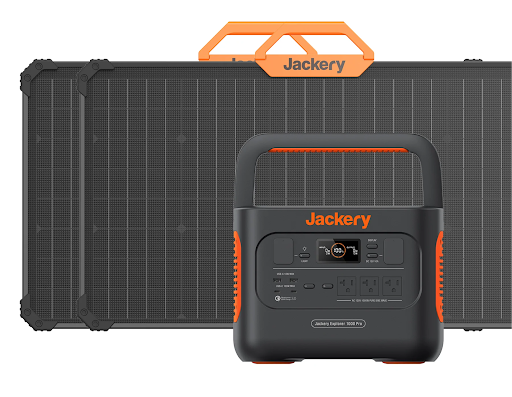
|
Series |
Capacity |
Bundle |
Recharging |
Ports |
Appliances |
|
Jackery Solar Generator 1000 Pro |
1002WH |
Explorer 1000 Pro + SolarSaga 80W/200W |
1.8 hours with 4 SolarSaga 200 panels 9 hours with 2 SolarSaga 80 panels |
AC Output (120V, 60Hz, 1000W), USB-A Output and USB-C Output |
Refrigerator(520W) TV(60W) Coffee Maker(550W) Microwave Oven(700W) Electric Heater(350W) Kettle(850W) |
Inverter VS Generator FAQ
What is the difference between a generator, inverter and UPS?
UPS and inverter save electric power in batteries in the form of DC to power your house when the power shuts down. These two need a grid connection to charge the battery. A generator produces electric energy by converting mechanical energy after burning some type of fossil fuel. You cannot connect batteries to a generator.
What are the benefits of using a solar power generator?
- Clean and eco-friendly energy
- No energy cost
- Helps you control your electric bills
How to choose a solar generator?
First, you need to calculate your energy requirement. After that, visit the official Jackery website and go to their products. Purchase the product that meets your requirements. With Jackery, you don’t have to worry about cost or product reliability because they are the world’s leading portable energy manufacturer.
What can I do with a solar generator?
- You can use it to power your outdoor activities such as camping, gaming, fishing, hunting, hiking, biking, off-grid living, and more.
- You can use it as your home backup, health care equipment, and emergency power supply.
- It can facilitate your work as solar power for farms, commercial trucks, mining, outdoor survey, photography, and more.
- You can also use it for entertainment, such as parties, games, movies, live houses, and drama nights.
Final Thoughts
Let's conclude our inverter vs generator guide here. If you are thinking of buying a supplementary power source for your house, work or any other use to supply energy when the grid power shuts down, you can pick any of the two. The generator is cheap to buy, has a high running cost, and can support heavy appliances and equipment. Inverters are expensive, small, and soundless, but they only supply moderate voltage. However, the best choice is a solar inverter generator. It runs on solar energy, can run most of your home appliances and workshop tools, and it is eco-friendly. Suppose you want to buy a solar generator. Visit the official Jackery website and purchase the highest quality portable energy products to enjoy an off-grid lifestyle.
Disclaimer:
The runtime mentioned for appliances powered by Jackery is for reference only. Actual runtime may vary under different conditions. Please refer to real-world performance for accurate results.







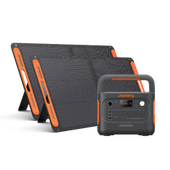



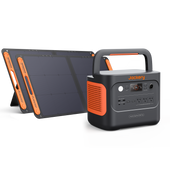

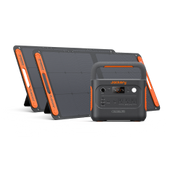
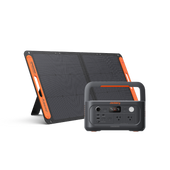
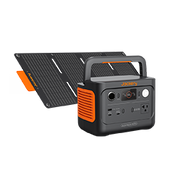
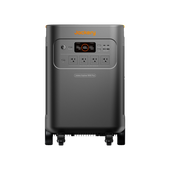

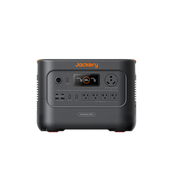
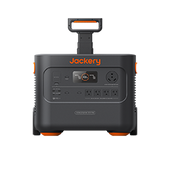
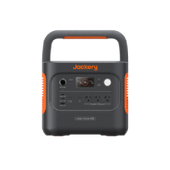
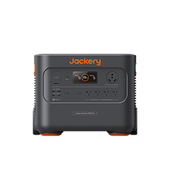

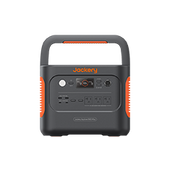
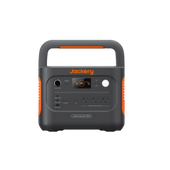
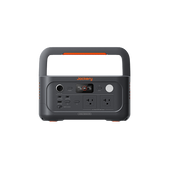

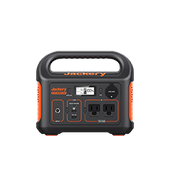
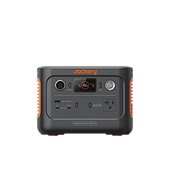
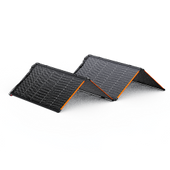
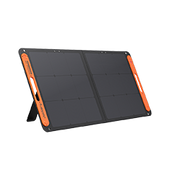

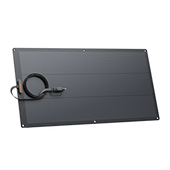
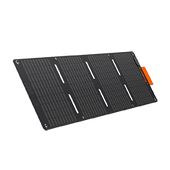
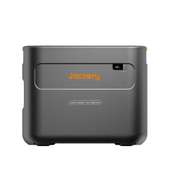
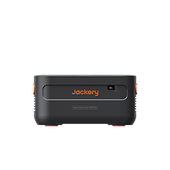
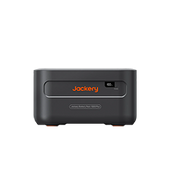
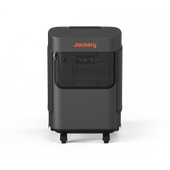
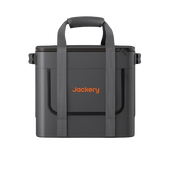
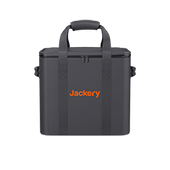
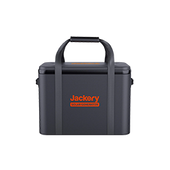
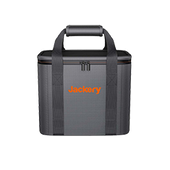
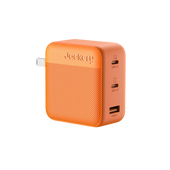
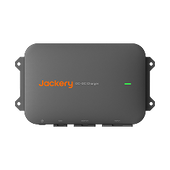
![[Add-on] Jackery Manual Transfer Switch for Explorer 5000 Plus](http://ca.jackery.com/cdn/shop/files/add-on-jackery-manual-transfer-switch-for-5000-plus-240V.webp?v=1757043692&width=170)
